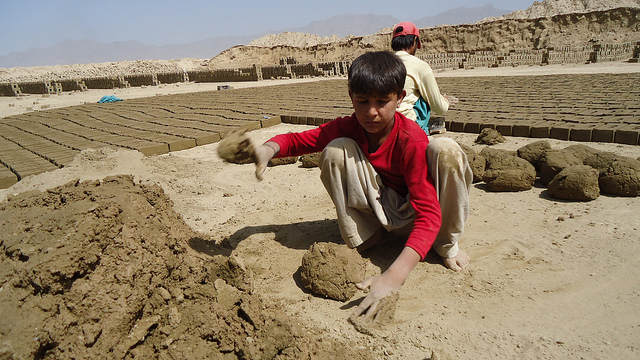Two billion of the world’s employed population aged 15 and over work informally, representing 61.2 per cent of global employment
Two billion of the world’s employed population aged 15 and over work informally, representing 61.2 per cent of global employment : ILO
The new report “Towards a More Equal City: Including the Excluded”, says the creation and reform of local economic development plans, urban land use plans, urban policy, and laws and regulations must be participatory and include informal workers, those who represent informal workers, and other relevant stakeholders.
“Include informal worker leaders in participatory policymaking and rule-setting processes such as development plans and urban land allocation plans,” says the WRI report.
This includes increasing informal workers’ access to public services, public spaces and public procurement.
And to better harness and encourage economic growth city governments and local officials should acknowledge the economic contribution informal workers make to the urban economy and reduce harassment and penalisation.
“Cities should provide core public services to informal workers to make their workplaces more productive; grant regulated access to public space and allow organisations of informal workers to compete for public procurement,” says the report.
They should also reform laws and regulations so they support informal workers by making it easier for them to register businesses.
Cities should also integrate informal economy activities into local economic development plans and urban land allocation plans as informal settlements are often thriving industrial hubs and house many home-based businesses.
Cities should also recognise and protect natural markets for vendors, and recognise that waste pickers contribute to cleaning streets, reclaiming recyclables and reducing carbon emissions.
 |
|
Recently, on May Day, we remembered the fallen heroes of the 1886 Chicago strike where workers demanded an eight-hour working day. We also celebrated the subsequent hard-won victories of employed workers in the regulation of hours of work. It is no accident that the Hours of Work (Industry) Convention, adopted by the International Labour Organization (ILO) in 1919, was the very first ILO instrument to be adopted. It is also no accident that the ILO has adopted a myriad of further Conventions regulating working time – including on hours of work, rest periods, night work and annual holidays. After all, working time (and by implication leisure and rest time) is at the heart not only of decent work, but of a decent life.
In compliance with many of the ILO Conventions regulating working time, almost 80 per cent of countries around the world have legislative provisions applying some kind of maximum limit on weekly working hours, including overtime. And 97 per cent of countries enshrine the right to a minimum period of paid annual leave in their legislation.
“More than 90 percent of India’s workforce is employed in the informal economy. That’s about 450 million workers, including security guards, housekeepers, construction workers and others, many of whom want more formal employment” Impact Alpha reported on its online Edition
“More than 60 per cent of the world’s employed population earns their livelihoods in the informal economy. Informality exists in all countries regardless of the level of socio-economic development, although it is more prevalent in developing countries. The 2 billion women and men who make their living in the informal economy are deprived of decent working conditions. Evidence shows that most people enter the informal economy not by choice, but as a consequence of a lack of opportunities in the formal economy and in the absence of other means of livelihood.” ILO
In June 2015, the International Labour Conference adopted the Transition from the Informal to the Formal Economy Recommendation (No. 204), the first international labour standard which focuses on the informal economy in its entirety. That same year, in September, the United Nations adopted the 2030 Agenda for Sustainable Development, which included the transition to formality in the targets for Sustainable Development Goal 8. These two instruments represent major milestones in the global approach to formalization, particularly by providing guidance on the process
.
International standards distinguish between employment in the informal sector and informal employment. Employment in the informal sector is an enterprise-based concept and it is defined in terms of the characteristics of the place of work of the worker. By contrast, informal employment is a job-based concept and it is defined in terms of the employment relationship and protections associated with the job of the worker.
International standards distinguish between employment in the informal sector and informal employment. Employment in the informal sector is an enterprise-based concept and it is defined in terms of the characteristics of the place of work of the worker. By contrast, informal employment is a job-based concept and it is defined in terms of the employment relationship and protections associated with the job of the worker.
Niti Bhan studies business strategy for Africa's informal markets: the small shops and stands, skilled craftspeople and laborers who are the invisible engine that keeps the continent's economy running. It's tempting to think of these workers as tax-dodgers, even criminals -- but Bhan makes the case that this booming segment of the economy is legitimate and worthy of investment. "These are the fertile seeds of businesses and enterprises," Bhan says. "Can we start by recognizing these skills and occupations?"
Informal workers make cities work
for all: 3 stories from Thailand, India and Colombia
Think of the delicious food stands in Southeast Asia, the street performers in Africa, the rickshaw driver in Bangladesh, and the invisible home-based workers who embroider garments and stitch shoes in India. What do they all have in common? They are all part of the global informal workforce.
Globally, informal employment represents just over 60 per cent of total employment and nearly 44 per cent of urban employment. In some cities of the global south, the informal economy employs 80 per cent of the working population.
The informal economy is an integral feature of the economic landscape of cities. It is time for cities to recognize and value the contribution of informal workers. If cities aspire to increase economic productivity, the way forward is to include informal workers in the formal processes and institutions of urban governance, planning and finance.
Twitteritis Reported
The #informaleconomy is an integral feature of the economic landscape of cities. It is time for cities to recognise and value the contribution of #informalworkers - @WorldResources http://bit.ly/2Lziyn5
The unaccountable volume of grassroots informal economy to have been previous to structural reforms was the potential of common men an instrumental to boost up the formal economy to have been, but now the chronicle mounts to have been built were melted down by the said reforms. Kate Meagher typologizes the informal economy, arguing that different types of IE have different institutional resources (due to history) and these establish different types of relationships btwn #informalworkers & the state #OSFWIEGO.
Interesting report from @ILO on the #InformalEconomy. Key findings are that >68% of the employed population in #AsiaPacific are in the informal economy, and the higher the #education level, the higher the chance to obtain formal employment. Read more here: http://www.ilo.org/wcmsp5/groups/public/---dgreports/---dcomm/documents/publication/wcms_626831.pdf …
"The informal sector is growing jobs at four times the rate of the traditional formal economy, or "modern" economy, as many call it. It offers employment and income generation opportunities to the most "unskilled" in conventional disciplines."
Mobile wallets, digital-remittance services and peer-to-peer lending have become common phrases in Asia’s financial lexicon. What are the opportunities for banks in bringing people out of the informal economy? Learn more at #FinanceDisrupted Asia > https://econ.st/2IUcC73
Women in informal economy must be able to access finance too. Thinking of the best #eCommerce model for the continent, I am deeply convinced that the solution lies in an #USSD format to ensure that you not only reach to the users with feature phones but also consolidate the supply side in the informal economy. Harriet Kariuki added,
The two biggest reforms (DeMo & GST) have badly hurt the informal sector. It seems Mr. Panagariya knows little about how India’s informal economy actually works on the ground. More than 90 percent of India’s workforce is employed in the informal economy. Now this #startup is hoping to give informal workers access to skills. BJP destroyed India's vibrant, employment generating informal economy by their Demonetization, to win UP. Once they did, got so over confident that installed Yogi as CM. Today the same is coming back to haunt them.
@NBSSI_Ghana takes the conversation forward for action. I will be speaking about “Mainstreaming the informal economy, a necessity for #GhanaBeyondAid” #GWES2018
Explaining and tackling the informal economy: a dual informal labor market approach | Employee Relations. Billions of unprotected workers engage in the #informal economy. Economies lose a potentially thriving addition to the mainstream economy & experience lower levels of innovation, production, & income. Learn more in our #Informality report: http://bit.ly/GFIInformality
Brand new global estimates show that the majority of workers worldwide - 61% - work in the informal economy. Formalization of these jobs should combine incentives and compliance measures with preservation and improvement of existing livelihoods. #OSFWIEGO
The #GlobalCompactMigration must protect the human & labor rights of all migrants & promote decent work for all, including women migrant workers, domestic workers & workers in the informal economy. For anyone to win election there are votes of core voters & fence sitters. Winner is one who addresses the issues of both. Get down to drawing board & find the real reason. When informal economy was hit by demonz voters supported BJP, but later BJP didn't compensate by lower tax.
References
- https://www.iol.co.za/business-report/economy/how-to-make-the-informal-sector-more-relevant-to-cities-economies-15213191
- https://www.equaltimes.org/regulated-working-time-is-a-must#.WxEhmSAh202?platform=hootsuite
- https://www.equaltimes.org/regulated-working-time-is-a-must#.WxEhmSAh202?platform=hootsuite
- https://impactalpha.com/betterplace-raises-3-million-to-upskill-and-formalize-indias-workforce/
- https://thebftonline.com/2018/features/editorial/women-in-informal-economy-must-be-able-to-access-finance-too/
- https://www.ted.com/talks/niti_bhan_the_hidden_opportunities_of_the_informal_economy
- http://www.wiego.org/content/working-informal-economy-seminar?platform=hootsuite
- http://www.eco-business.com/news/informal-workers-make-cities-work-for-all-3-stories-from-thailand-india-and-colombia/
- https://papers.ssrn.com/sol3/cf_dev/AbsByAuth.cfm?per_id=1789610
- http://www.ilo.org/wcmsp5/groups/public/---dgreports/---dcomm/documents/publication/wcms_626831.pdf

Comments
Post a Comment